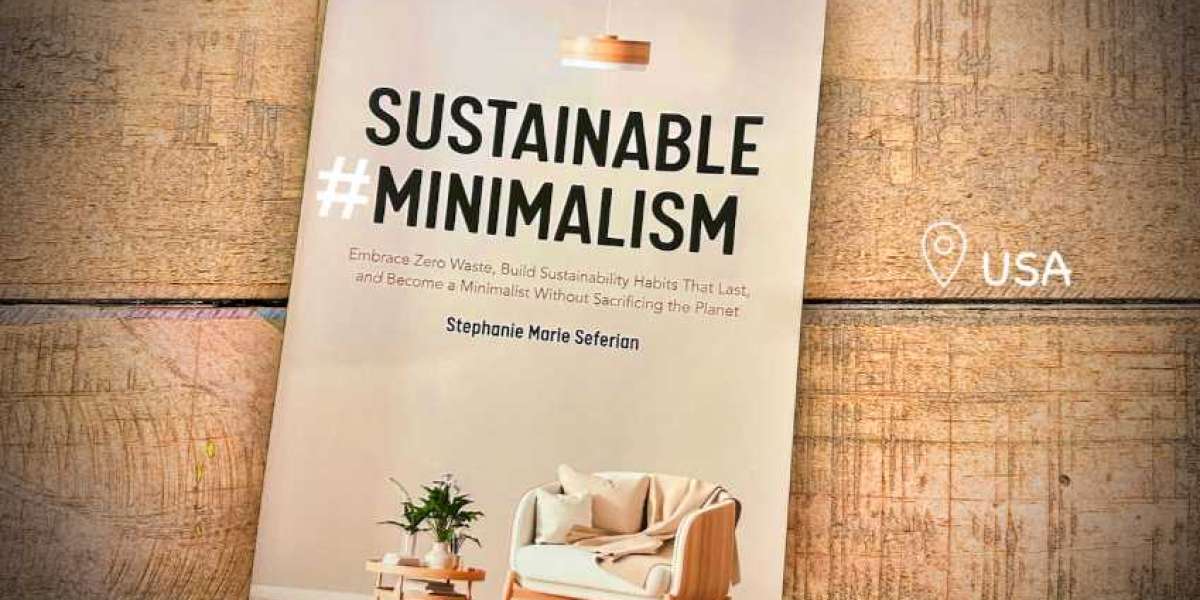In a culture often defined by consumerism and excess, a minimalist lifestyle offers a refreshing perspective: less is more. As Americans grapple with rising costs of living, environmental concerns, and mental health challenges, many are choosing to embrace minimalism. This lifestyle, focused on intentional living and decluttering, is not just about owning fewer things—it’s about creating more room for what truly matters.
This blog delves into the minimalist lifestyle in the USA, exploring its origins, principles, benefits, challenges, and practical steps for adopting this transformative way of living.
The Origins of Minimalism
Minimalism has roots in various cultural and philosophical traditions:
- Japanese Zen Philosophy: Emphasizing simplicity, mindfulness, and the beauty of emptiness.
- Western Stoicism: Advocating self-discipline, moderation, and focusing on what you can control.
- Modern Decluttering Movements: Popularized by figures like Marie Kondo (The Life-Changing Magic of Tidying Up) and minimalist advocates Joshua Fields Millburn and Ryan Nicodemus (The Minimalists).
In the U.S., minimalism gained traction during the post-recession period of the late 2000s, as many sought alternatives to the stress of overconsumption and financial instability.
Principles of Minimalism
Minimalism is about more than just downsizing possessions. Its core principles include:
- Intentionality: Making deliberate choices about what you own, how you spend your time, and what you value.
- Decluttering: Removing physical, emotional, and mental clutter to focus on what truly matters.
- Sustainability: Living in a way that reduces waste and environmental impact.
- Quality Over Quantity: Investing in fewer but better items, experiences, and relationships.
- Mindfulness: Being present and appreciating the simple joys of life.
Why Americans Are Embracing Minimalism
1. Economic Pressures
- Rising housing costs, student loan debt, and inflation make a consumerist lifestyle unsustainable for many.
- Minimalism offers financial freedom by encouraging mindful spending and saving.
2. Environmental Concerns
- Climate change and overproduction have spurred interest in sustainable living.
- Minimalism reduces waste by promoting second-hand shopping, recycling, and repairing.
3. Mental Health Awareness
- Overloaded schedules and cluttered homes contribute to stress and anxiety.
- Simplifying life can lead to better focus, reduced stress, and improved well-being.
4. Cultural Shifts
- The popularity of tiny homes, capsule wardrobes, and digital detoxes reflects a broader shift toward intentional living.
Benefits of a Minimalist Lifestyle
1. Financial Freedom
- Spending less on material goods frees up money for savings, investments, and meaningful experiences.
- Many minimalists report achieving debt-free living.
2. Improved Mental Health
- Decluttered spaces create a sense of calm and order.
- A focus on fewer commitments reduces feelings of overwhelm.
3. Greater Environmental Impact
- Consuming less reduces waste and carbon footprints.
- Minimalists often embrace eco-friendly practices like upcycling and sustainable purchasing.
4. Enhanced Relationships
- Minimalism prioritizes experiences over possessions, encouraging deeper connections with loved ones.
5. Increased Productivity
- A simplified environment and schedule allow for better focus on work, hobbies, and personal goals.
Practical Steps to Embrace Minimalism
1. Start Small
- Declutter one room or category at a time (e.g., clothes, books, or kitchen items).
- Apply the "one in, one out" rule: For every new item, let go of an old one.
2. Define Your Values
- Identify what’s truly important in your life—family, creativity, travel, etc.
- Use these values as a guide for what to keep and prioritize.
3. Adopt a Capsule Wardrobe
- Limit your clothing to versatile, high-quality pieces that work together.
- Popular brands for minimalists include Everlane, Uniqlo, and Patagonia.
4. Digital Decluttering
- Organize your files, delete unused apps, and unsubscribe from unnecessary emails.
- Limit screen time to focus on offline experiences.
5. Simplify Your Schedule
- Prioritize commitments that align with your values and say "no" to non-essential obligations.
- Use tools like Google Calendar or Notion to streamline planning.
6. Embrace Sustainable Living
- Buy second-hand or from ethical brands.
- Practice mindful consumption by repairing or repurposing items.
Minimalism in Different Aspects of Life
1. Minimalist Homes
- Focus on clean lines, functional furniture, and multipurpose spaces.
- The tiny house movement exemplifies minimalist living, with homes as small as 200 square feet.
2. Food and Meal Planning
- Embrace simple meals with fresh, whole ingredients.
- Batch cooking and meal prepping reduce waste and save time.
3. Travel
- Opt for carry-on luggage only, packing versatile clothing and essentials.
- Choose meaningful travel experiences over tourist-heavy destinations.
4. Work and Career
- Streamline your work environment for better focus.
- Pursue careers or side hustles aligned with your passions and values.
Challenges of Minimalism in the USA
1. Consumer Culture
- Advertising and societal norms promote materialism, making minimalism countercultural.
2. Emotional Attachments
- Letting go of sentimental items can be difficult, even if they no longer serve a purpose.
3. Family Dynamics
- Convincing family members to embrace minimalism can be challenging, especially with differing priorities.
4. Initial Costs
- Transitioning to high-quality, sustainable items may require an upfront investment.
5. Maintaining Consistency
- Avoiding the reaccumulation of clutter requires ongoing mindfulness and discipline.
Minimalism and Sustainability
Minimalism and environmentalism often go hand in hand. By consuming less and prioritizing quality, minimalists contribute to a more sustainable future. Popular practices include:
- Zero-Waste Living: Using reusable bags, containers, and utensils.
- Conscious Shopping: Supporting ethical brands and buying second-hand.
- Energy Efficiency: Reducing energy consumption with solar panels, LED lighting, and minimal electronics.
Inspiring Minimalists and Resources
Influential Minimalists
- Marie Kondo: Decluttering expert who encourages keeping items that "spark joy."
- The Minimalists (Joshua Fields Millburn Ryan Nicodemus): Advocates for living a meaningful life with less.
- Courtney Carver: Creator of Project 333, a minimalist fashion challenge.
Resources
- Books:
- The Life-Changing Magic of Tidying Up by Marie Kondo.
- Essentialism: The Disciplined Pursuit of Less by Greg McKeown.
- Podcasts:
- The Minimalists Podcast.
- Optimal Living Daily.
- Documentaries:
- Minimalism: A Documentary About the Important Things.
- Tidying Up with Marie Kondo.
The Future of Minimalism in the USA
Minimalism is more than a passing trend—it’s a response to a changing world. As Americans continue to grapple with economic challenges, environmental concerns, and mental health struggles, the minimalist lifestyle is likely to gain more adherents.
Future directions may include:
- Community Living: Shared resources and co-housing to reduce costs and environmental impact.
- Digital Minimalism: Increased focus on intentional use of technology to foster mindfulness.
- Global Influence: Borrowing practices from cultures that prioritize simplicity and sustainability.
Conclusion
The minimalist lifestyle offers a pathway to greater freedom, fulfillment, and focus in a society overwhelmed by excess. While not without challenges, the benefits of living with less are profound—financial stability, mental clarity, and a reduced environmental footprint.
In the United States, minimalism is a powerful antidote to the stress of modern life, encouraging individuals to prioritize what truly matters. Whether you’re decluttering your closet, simplifying your schedule, or reevaluating your values, minimalism is a journey worth embarking on.
Through intentional living, Americans can find joy not in accumulation, but in appreciating the beauty of simplicity.














